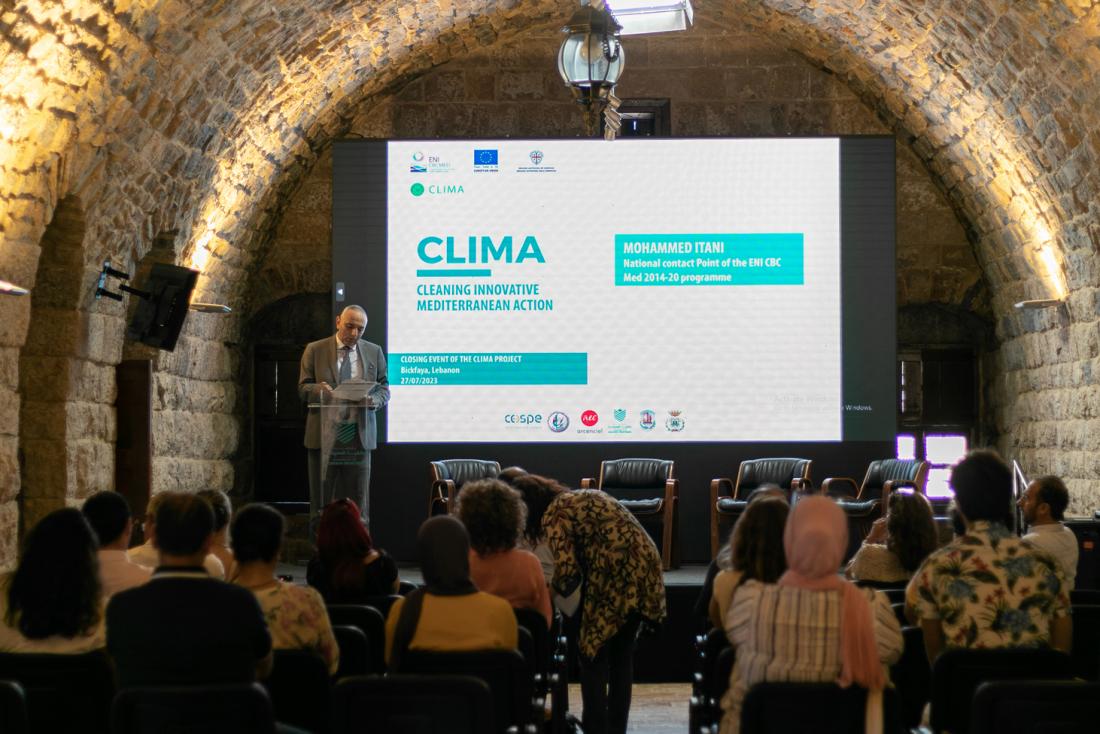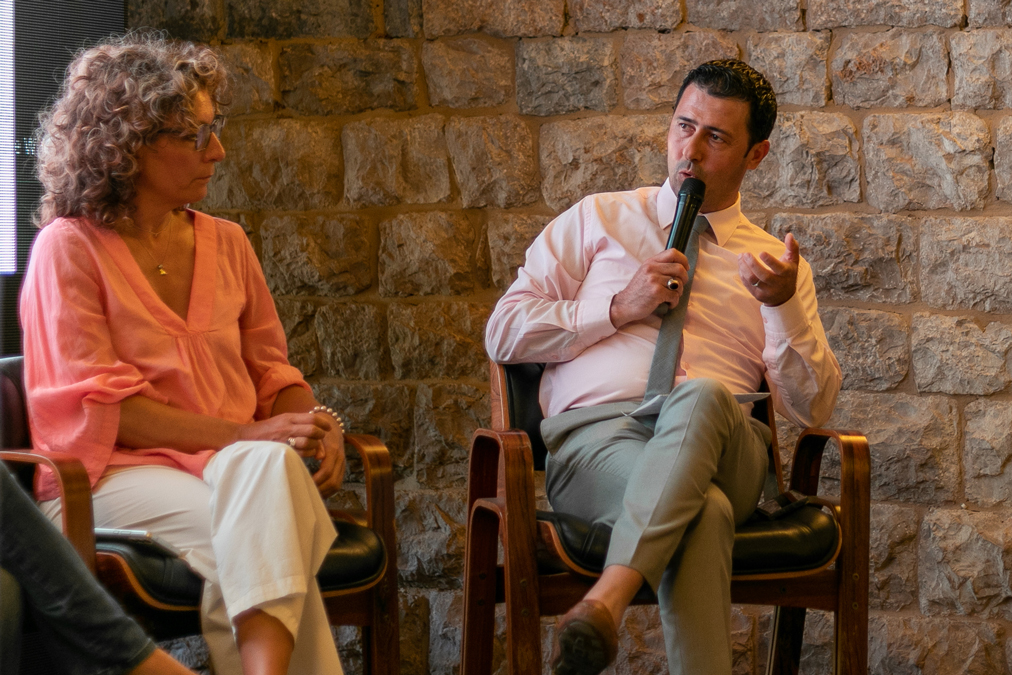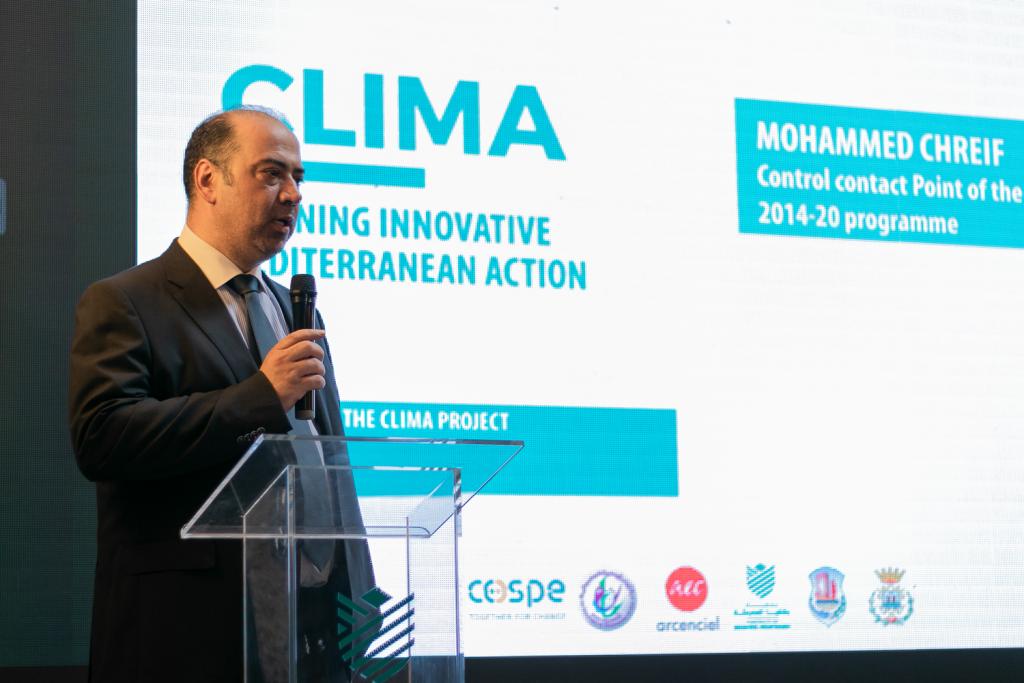CLIMA final event in Lebanon showcases results to improve waste management in 3 Mediterranean areas

In the charming town of Bickfaya, Lebanon, the closing event of the EU-funded project "CLIMA - Cleaning Innovative Mediterranean Action" took place on 27th July 2023. Overcoming several challenges, including the COVID-19 pandemic, financial crises, and political instabilities, the CLIMA project succeeded in making significant strides in waste valorization and sustainable practices in the Mediterranean region. The event marked a momentous occasion, bringing together stakeholders, municipal representatives, and project partners to commemorate the project's accomplishments and discuss its future impact.
The CLIMA project, aimed to address the pressing issue of waste management and its environmental and economic repercussions in the region. By fostering cooperation and embracing innovative approaches, the project demonstrated how waste could be transformed into valuable resources, paving the way for a more sustainable and circular economy.

The opening session featured Nicole Gemayel, the Mayor of Bickfaya, along with representatives from ENI CBC Med, Mohamed Itani, and Mohammed Chreif. They lauded the project's resilience in overcoming adversities and emphasized how the establishment of composting sites in Mahdia and Bickfaya marked a significant step toward organic waste valorization in their municipalities. The speakers also highlighted the installation of solar panels at the composting site of Bickfaya, ensuring energy self-sufficiency despite the region's energy crisis.
Throughout the CLIMA project, it achieved a remarkable impact across various levels. At the political and institutional level, three integrated Municipal Waste Management Plans (MWMPs) were developed, engaging over 200 representatives from municipalities and environmental services. In terms of waste valorization, composting sites were successfully established in Mahdia (Tunisia) and Bickfaya (Lebanon), processing 5 and 4.5 tons of organic waste per day, respectively. Additionally, the project's awareness-raising and advocacy campaigns reached over 2 million people, effectively spreading the message of sustainable waste management.

During the first talk, the representatives of the three local authorities Nicole Gemayel (Lebanon), Karim Khouadja (Tunisia), and Annalisa Fresia (Italy) shared their experiences of how the CLIMA project addressed the specific needs and resources of their respective municipalities. The project not only provided practical solutions to existing waste management challenges but also empowered the municipalities to implement innovative waste management practices. They praised the project for its ability to turn difficulties into opportunities and pave the way for waste management innovation.
The second talk, delved into the project's achievements. The speakers highlighted the challenges encountered during the project's implementation and the creative problem-solving strategies that were employed. Despite the obstacles, the project successfully established two pilot composting sites, one in Lebanon and one in Tunisia, with a daily organic waste processing capacity of approximately five tons each. Additionally, the project provided financial support to eleven enterprises working towards circular economy initiatives, further promoting sustainability in the region.

A key highlight of the closing event was the presentation of the publication titled "Toward an IMWMP 2.0". The publication showcased the journey taken to develop Integrated Municipal Waste Management Plans (IMWMPs) for the three participating municipalities (Bickfaya, Mahdia and Sestri Levante). It serves as a comprehensive guide and inspiration for other municipalities seeking to embark on similar waste management projects and adopt a zero-waste paradigm.
The CLIMA project exemplifies the power of cross-border collaboration and innovative solutions to environmental challenges. As the project concludes, its achievements stand as a testament to the potential for transformative change in waste management practices. Armed with valuable experiences and insights, the participating municipalities are well-equipped to continue their journey towards sustainable waste management, paving the way for greener and more sustainable economies in the Mediterranean region.










